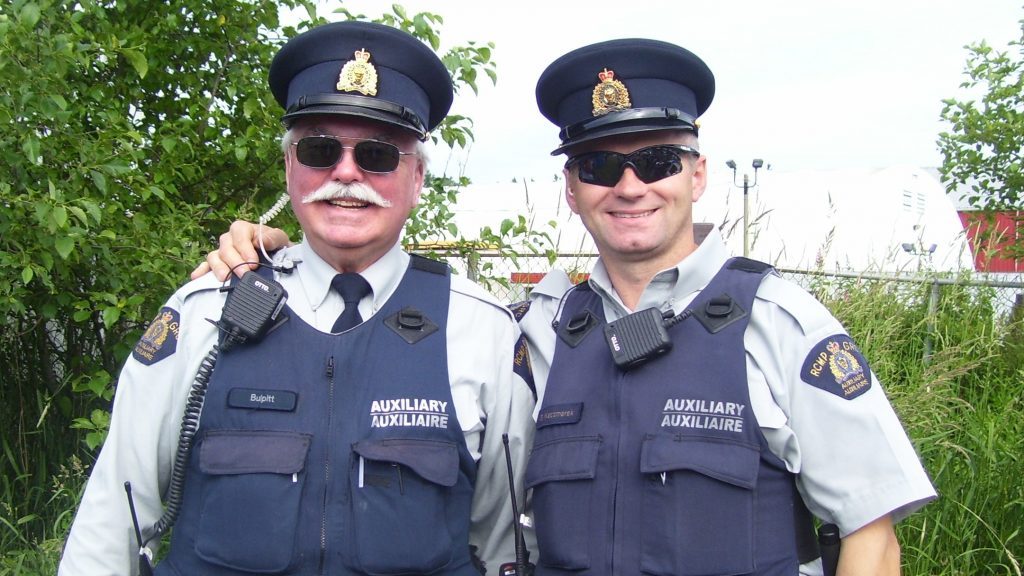Are you interested in getting into security or law enforcement, but want to know a bit more before you join? Then becoming an Auxiliary Police Officer might just be for you. Even if you don’t want a career change but have a passion for policing, volunteering as an Auxiliary or Reserve Constable is a great way to help address crime and strengthen bonds within the community.
What is an Auxiliary Police Officer?
So, what exactly is an Auxiliary Police Officer? The position varies from province to province, but ultimately, it’s an opportunity for members of the public to volunteer with their local police department in the community they live in.
It’s important to remember that most Auxiliary Police Officers, Auxiliary Constables, or Reserve Constables aren’t allowed to enforce the law or take part in anything dangerous. In some provinces, such as New Brunswick, Auxiliary Police are sworn in as Peace Officers and have the authority of a Peace Officer, but only when accompanied by a regular Police Officer.
While becoming an Auxiliary Police Officer is a great way to gain experience, most departments are looking for someone who doesn’t just want to get into law enforcement, but instead, is more concerned about the safety and well-being of the community.
Responsibilities
While the goal is to help assist the detachment, duties, and responsibilities of an Auxiliary Police Officer vary in each city or province, but can include the following:
- Going on patrol with police officers
- Helping out at community events
- Assisting with crowd and traffic control
- Taking part in parades and events
- Victim assistance
- Search and rescue
- Assist with crime prevention initiatives
- Conducting foot or bike patrols
- Administrative work
- Coastal watch
What to expect
Now that you know the different types of responsibilities you could be tasked with, let’s dive into what you should expect. While every department is different, the one thing that remains consistent is that they are investing in you, meaning they will provide you with a uniform and a training program to help prepare you for interaction with police and the community.
In some departments, like the RCMP, there are three tiers of training that can be completed. The different tiers will result in what kind of duties you’ll be able to do. For example, Tier 1 allows volunteers to participate in community policing services such as parades and watch programs. Tier 2 includes all Tier 1 activities plus foot and bicycle patrols, while Tier 3 includes Tier 1 and 2 activities along with general duty patrols. What tier you are trained in depends on the need of the detachment and community.
In some municipal police forces, such as Abbotsford PD, Reserve Constable training takes about four months, being held 1-2 evenings a week and one weekend day. Volunteers then have to take an exam and must score a minimum of 70%. The training also has a physical and team-building component.
As for the uniform, it’s similar to that of the department you are volunteering with and will likely have a badge on the shoulder that says the word “Auxiliary” or “Volunteer”. Auxiliary Officers don’t carry any guns or weapons, and in some departments, they aren’t authorized to accompany regular members on patrol either but can perform other police functions, as listed above.
If volunteering as an Auxiliary Officer with the RCMP, you will be covered by insurance against injury and civil liability.
Requirements
When applying to your local police department as an Auxiliary Officer or Reserve Constable, the following may be required:
- Have a high school diploma
- Be over 18 or 19 (RCMP) years of age
- Have successfully completed a drug and background test
- Be a Canadian or permanent resident
- Be a fully licensed driver who meets provincial requirements
- Complete ongoing training as required
- Have good moral character
Some departments go a step further:
- Meet the vision standard
- Have a high level of physical fitness
- Have standard First Aid and basic CPR training
In most departments, there is a requirement for how many hours per year you must volunteer. For example, if you are an Auxiliary Officer with the Toronto Police Department, a minimum of 150 hours per year of volunteer work is required. With the RCMP, it’s 160 hours. That’s about 13.5 hours per month. The RCMP and police departments ask that all Auxiliary Officers are fully dedicated to the time commitment and show up for all scheduled shifts throughout the entire year.
Special Municipal Constables
A step up from being an Auxiliary Officer/Reserve Constable is working as a Special Municipal Constable. This position exists in a number of municipal departments across the country. At the Vancouver Police Department, this position includes working as a jail guard, traffic authority, and community safety officer. It’s a paid position and provides relevant experience for anyone looking to pursue a policing career.
Joining Paladin Security
If you’re looking for meaningful work and interested in starting in the security industry, Paladin is an excellent stepping-stone into policing. A career as a security officer provides you with the skills and experience needed to help you qualify for a career in law enforcement. Be sure to listen to Episode 2 of The Difference Makers | A Paladin Security Podcast to find out more.
For openings with Paladin, visit our careers page.
How to get involved
Not every RCMP detachment or police force has an Auxiliary Officer program, so it’s best to check with your local department. Here are a few resources by province:
British Columbia
RCMP: https://bc-cb.rcmp-grc.gc.ca/ViewPage.action?siteNodeId=430&languageId=1&contentId=-1
Abbey PD: https://www.abbypd.ca/reserve-constable-program
Provincial Information: https://www2.gov.bc.ca/gov/content/justice/criminal-justice/policing-in-bc/the-structure-of-police-services-in-bc/auxiliary-reserve-constables
Alberta
RCMP: https://www.rcmp-grc.gc.ca/ab/community-communaute/auxil-eng.htm
Manitoba
Winnipeg PD: https://www.winnipeg.ca/police/
Ontario
Peel Police: https://www.peelpolice.ca/en/work-with-us/auxiliary-police.aspx
Toronto PD: http://www.torontopolice.on.ca/community/volunteer_aux.php
Nova Scotia
Halifax Regional Police: https://www.halifax.ca/fire-police/police/volunteer-halifax-regional-police
General
RCMP: https://www.rcmp-grc.gc.ca/en/auxiliary-program












